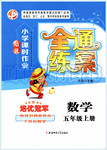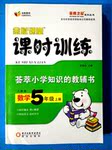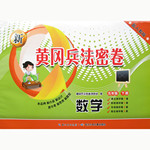
________ your memory, you will need to take an active role in everything you do.
A.Improving
B.To improve
C.Improved
D.Improve
 小学课时作业全通练案系列答案
小学课时作业全通练案系列答案 金版课堂课时训练系列答案
金版课堂课时训练系列答案 单元全能练考卷系列答案
单元全能练考卷系列答案 新黄冈兵法密卷系列答案
新黄冈兵法密卷系列答案科目:高中英语 来源: 题型:阅读理解
Did you know that there are gifts that will multiply your happiness when you give them away? Here are five of those gifts. Giving these gifts will allow you to share with others your most unique treasure: your real self. Each gift will return to you many times.
1. Share appreciation
Tell someone how much you appreciate the faith they've shown in you. Thank them sincerely for being part of your life. Tell them how much they are needed.
Feeling appreciated is one of the most important needs that people have. When you share with someone your appreciation and gratitude, they will not forget you. Appreciation will return to you many times.
2. Share time
Balance your time expenditures (耗费)so you can spend time with the people that you love. Support local organizations by sharing your special talents. Volunteer time for projects that benefit others in your community, country, and world.
When we slow down and observe our thoughts closely, we will sometimes uncover gifts and talents we didn't know we had. Sharing time and talents can result in discoveries that bring happiness beyond measure.
3. Share knowledge and ideas
Tell someone about a great book that you read so they can benefit from it too. Teach a new concept or idea that you've learned.
One of the best ways to strengthen new concepts in your mind is to share them with others. The more often you share what you've learned, the stronger that information will become in your memory. Sharing knowledge also provides solutions to problems. The more knowledge we share, the more knowledge we receive in return.
4. Share friendship
Acknowledge someone's strengths. Let them know that you are willing to be there when they need you. Visit someone you haven't seen for a long time. Telephone friends or relatives who live far away. Introduce two friends who don't know each other.
Bringing one individual into another's life can result in tremendous changes for both people, and for you. We succeed with the help of others. People grow by growing together. If you'd like to have many friends, then share friendship with others generously.
5. Share kindness
Perform a random act of kindness for someone: a smile, compliment, or a favor just for fun. These will multiply and spread very rapidly.
There is a powerful quote by Stephen Jay Gould who said, “The center of human nature is rooted in ten thousand ordinary acts of kindness that define our days.” Kindness is priceless. The love, kindnesses, and value we have given authentically to others will be our remaining treasures at the end of life.
Think about this statement by Norman MacEwan: “Happiness is not so much in having as sharing. We make a living by what we get, but we make a life by what we give.”
What is the best title of this passage?
A. We want to share. B. Give your presents away.
C. We make a life by giving. D. Don’t be mean to give.
What can we learn from Stephen Jay Gould’s words?
A. We all come from a world which is in a harmonious atmosphere.
B. Everybody’s deep heart is filled with kindness at first, which decides our present life.
C. Kindness is the most important thing in our daily life.
D. We need kindness all the time.
For those who are living a life on the go, what suggestion will the writer probably give to them?
A. Tell the people around you how much you love them.
B. No one is an isolated island. We succeed with the help of others
C. The more knowledge we share, the more knowledge we receive in return.
D. Slow down and enjoy the life, which may bring you a brand new world with happiness.
Where can you probably find this passage?
A. Magazines B. Newspapers C. Guide books D. Scientific reports
查看答案和解析>>
科目:高中英语 来源: 题型:阅读理解
If you do not use your arms or your legs for some time, they become weak; when you start using them again, they slowly become strong again. Everybody knows that. Yet many people do not seem to know that memory works in the same way. When someone says that he has a good memory, he really means that he keeps his memory in practice by using it. When someone else says that his memory is poor, he really means that he does not give it enough chance to become strong. If a friend says that his arms and legs are weak, we know that it is his own fault(过错). But if he tells us that he has a poor memory, many of us think that his parents are to blame(受责备), and few of us know that it is just his own fault. Have you ever found that some people can’t read or write but usually they have better memories? This is because they cannot read or write and they have to remember things; they cannot write down in a little notebook. They have to remember days, names, songs and stories; so their memory is the whole time being exercised. So if you want to have a good memory, learn from the people: Practice remembering.
The main reason for one’s poor memory is that _______.
A. his father or mother may have a poor memory
B. He does not use his arms or legs for some time
C. his memory is not often used
D. he can’t read or write
Which of the following is NOT true?
A. Your memory works in the same way as your arms or legs.
B. Your memory, like your arms or legs, becomes weak if you don’t give it enough chance for practice.
C. Don’t learn how to read and write if you want to have a better memory.
D. A good memory comes from more practice.
Some people can’t read or write, but they usually have better memories, because _______.
A. they have save much trouble
B. they have saved much time to remember things
C. they have to use their memories all the time
D. they can’t write everything in a little notebook
查看答案和解析>>
科目:高中英语 来源:2012-2013学年辽宁朝阳柳城高中高三上学期第三次月考英语试卷(带解析) 题型:阅读理解
Beginning college is exciting: new ideas to explore, new challenges to meet and many decisions to make.Your future begins here.
However, you will find college life is different from your previous school environment. Many of us can be easily overwhelmed(压垮)by the details of running a well-balanced life.While some of us may have the know-how, I guess there are more of us who can benefit from learning about the experiences of others who have walked the college halls before you.
The following you may find of use about life on campus.
* Plan well.There are so many new things to do at a new college or university.Give yourself time to make new friends and become familiar with the campus, but don’t forget why you are there.Give some time for social activities and manage your time wisely.
* If you don’t have a “system” for planning your time now(like a day timer, a computer data book), get one.Most of all, don’t depend on your memory.
* Don’t miss the guidelines.The restrictions, rules and regulations of all kinds can usually be found in your student handbook.Consider them well-balanced food for thought.What dates are important? What pieces of paper need to be handed in? What can/ can’t you do in class? What can/ can’t you do in your student residence? Who has right for what? What do you need to complete to graduate?
* Write the word “STUDY” on the walls of our bedroom and bathroom, and maybe it will help to write it on a piece of paper and stick it on the telephone, TV and the kitchen table.Consider this—you are paying thousands of dollars for your courses. You pay every time you have to repeat or replace a course.
* Build your identity.This is the time for you to decide what to do and what not to do.Take as much time as you need to explore new ideas.Do not be afraid of the beyond.This is learning to make good choices.
【小题1】What is the main purpose of the passage?
| A.To describe the importance of college life. |
| B.To explain why college life is exciting. |
| C.To offer advice on college life. |
| D.To persuade you to go to college. |
| A.Because you prepare for your future career and life there.. |
| B.Because you will no longer be afraid of the beyond. |
| C.Because you will have more freedom at college. |
| D.Because professors there will provide you with many new ideas. |
| A.an understanding of how things are going at college |
| B.college halls where rules and regulations are presented |
| C.practical knowledge about how to behave and what to do at college |
| D.an environment completely different from the one you’re used to |
| A.needn’t learn from those who went to college before them |
| B.should know what they have fought for on campus |
| C.spend as much time as possible on social activities |
| D.are supposed to repeat or replace at least one course |
查看答案和解析>>
科目:高中英语 来源:2011届江苏省扬州中学高三下学期开学测试英语卷 题型:阅读理解
If you don’t have a college degree, you’re at greater risk of developing memory problems or even Alzheimer’s (老年痴呆). Education plays a key role in lifelong memory performance and risk for mental disorder, and it's well documented that those with a college degree possess a cognitive(认知的) advantage over those less educated in middle and old age.
Now, a large national study from Brandeis University published in the American Journal of Geriatric Psychiatry shows that those with less schooling can significantly make up for poorer education by frequently engaging in mental exercises such as word games, puzzles, reading, and lectures.
“The lifelong benefits of higher education for memory in later life are quite impressive, but we do not clearly understand how and why these effects last so long,” said lead author Margie Lachman, a psychologist. She suggested that higher education may encourage lifelong interest in cognitive efforts, while those with less education may not engage as frequently in mental exercises that help keep the memory agile (敏捷地).
But education early in adulthood does not appear to be the only route to maintain your memory. The study found that intellectual activities undertaken regularly made a difference. “Among individuals with low education, those who are engaged in reading, writing, attending lectures, doing word games or puzzles once a week or more had memory scores similar to people with more education,” said Lachman.
The study, called Midlife in the United States, assessed 3,343 men and women between the ages of 32 and 84 with an average age of 56 years. Almost 40 percent of the participants had at least a 4-year college degree. The researchers evaluated how the participants performed in two cognitive areas, verbal (言语的)memory and executive function --- brain processes involved in planning, abstract thinking and cognitive flexibility. Participants were given a series of tests, including tests of verbal fluency, word recall, and backward counting.
As expected, those with higher education said they engaged in cognitive activities more often and also did better on the memory tests, but some with lower education also did well, explained Lachman.
“The findings are promising because they suggest there may be ways to level the playing field for those with lower educational achievement, and protect those at greatest risk for memory declines,” said Lachman. “Although we can not rule out the possibility that those who have better memories are the ones who take on more activities, the evidence is consistent with cognitive plasticity (可塑性), and suggests some degree of personal control over cognitive functioning in adulthood by adopting an intellectually active lifestyle.”
【小题1】 What is the text mainly about?
| A.Higher education has a better cognitive advantage. |
| B.Better memories result from college degree. |
| C.Cognitive activity does good to one’s mind. |
| D.Poor education has more risk of memory declines. |
| A.education is responsible for the lifelong memory performance and risk for mental disorder |
| B.education early in adulthood can be the only route to maintain your memory |
| C.those with higher education did better on the memory tests than those with lower education |
| D.an intellectually active lifestyle does help to maintain your memory |
| A.Participants each were given a battery to test their memory. |
| B.The average age of the participants are 56 years old. |
| C.Participants had to perform in one of the two cognitive areas. |
| D.One in four of the participants had a 4-year college degree. |
 hman’s study promising?
hman’s study promising?| A.The lower educated may have the same opportunities to keep up memory. |
| B.We may have ways to cure the people who have memory declines. |
| C.Adopting a different lifestyle can control cognitive functioning. |
| D.We can find out the possibility to have better memories. |
查看答案和解析>>
科目:高中英语 来源:2013-2014学年湖南省高三月考英语试卷(解析版) 题型:其他题
Like our body, our memory needs regular exercise to be in good condition. Like the sportsman who must train to allow the body to respond to difficult times, the memory needs its own special training in order to stay in “shape” and improve.
There are many factors that can cause poor memory like insomnia (失眠), depression and alcohol. However, there are simple ways which you can follow to keep your memory in shape and actually help you to improve your memory’s condition and performance.
Never stop learning. Look for topics that interest you and really get involved in learning new information about them. Reading and attending lectures or programs are sources of continuous education of your brain with beneficial results to your memory.
Develop your social and family relationships. The more social you are, the better it is for your brain. Studies have shown that the brain and heart have a lot to gain from good family and social relationships.
Exercise your mind with games. The more you use your brain, the more you help your memory stay in shape. There are many games that can make you an intelligent person as well as entertain you such as chess, puzzles and board games.
Exercise physically can improve your memory. This type of exercise improves the circulatory (血液循环的) system. Even the simple but regular daily exercise such as fast walking can improve the heart and oxygenation(供氧) of the brain. The benefits of exercise affect positively many body systems, as well as our memory and other cognitive(认知的) capabilities.
Eat more fruit and vegetables. What we eat every day affects the performance and long-term condition of our memory. Fruit and vegetables are an excellent source of antioxidants(抗氧化剂) and vitamins that can help and benefit the nervous system.
So our memory is like a sportsman. The more we practice our brains and memory, the better their performance will be.
Title: How to improve memory
|
Topic |
1. like insomnia, depression and alcohol can lead to poor memory. We should exercise 2. to keep memory in good condition. |
|
|
Ways to improve memory |
Never stop learning |
3. like reading and attending lectures or programs does good to your memory. |
|
Develop social and family relationships |
Good family and social relationships are beneficial to your brain and contribute to 4. as well. |
|
|
Exercise mind with games |
Play chess, puzzles or board games, which is of great benefit to your intelligence and also offers you5. . |
|
|
Take6. exercise |
Physical exercise improves the 7. of the brain, which leads to better memory. |
|
|
Eat more fruit and vegetables. |
Fruit and vegetables are 8. in antioxidants and vitamins that can help and benefit the nervous system. |
|
|
9. |
If we practice brains and memory more, they will 10. . |
查看答案和解析>>
湖北省互联网违法和不良信息举报平台 | 网上有害信息举报专区 | 电信诈骗举报专区 | 涉历史虚无主义有害信息举报专区 | 涉企侵权举报专区
违法和不良信息举报电话:027-86699610 举报邮箱:58377363@163.com